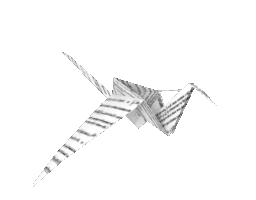All papers authored by Amy D. Rodriguez

Refreshing results…



2023
Yashar Kiarashi  ,
Soheil Saghafi
,
Soheil Saghafi  ,
Barun Das
,
Barun Das  ,
Chaitra Hegde,
Venkata Siva Krishna Madala
,
Chaitra Hegde,
Venkata Siva Krishna Madala  ,
ArjunSinh Nakum,
Ratan Singh,
Robert Tweedy
,
ArjunSinh Nakum,
Ratan Singh,
Robert Tweedy  ,
Matthew Doiron,
Amy D. Rodriguez
,
Matthew Doiron,
Amy D. Rodriguez  ,
Allan I. Levey,
Gari D. Clifford,
Hyeokhyen Kwon
,
Allan I. Levey,
Gari D. Clifford,
Hyeokhyen Kwon  Download from doi.org
Download from doi.org
 ,
Soheil Saghafi
,
Soheil Saghafi  ,
Barun Das
,
Barun Das  ,
Chaitra Hegde,
Venkata Siva Krishna Madala
,
Chaitra Hegde,
Venkata Siva Krishna Madala  ,
ArjunSinh Nakum,
Ratan Singh,
Robert Tweedy
,
ArjunSinh Nakum,
Ratan Singh,
Robert Tweedy  ,
Matthew Doiron,
Amy D. Rodriguez
,
Matthew Doiron,
Amy D. Rodriguez  ,
Allan I. Levey,
Gari D. Clifford,
Hyeokhyen Kwon
,
Allan I. Levey,
Gari D. Clifford,
Hyeokhyen Kwon  Download from doi.org
Download from doi.org







2022
Maryanne Weatherill,
Elizabeth O. Tibus,
Amy D. Rodriguez 

Motivation as a Predictor of Aphasia Treatment Outcomes
Upload
Kirstine Shrubsole  ,
David Copland
,
David Copland  ,
Annie Hill
,
Annie Hill  ,
Asaduzzaman Khan
,
Asaduzzaman Khan  ,
Melissa Lawrie
,
Melissa Lawrie  ,
Denise A. O’Connor
,
Denise A. O’Connor  ,
Moya Pattie,
Amy Rodriguez
,
Moya Pattie,
Amy Rodriguez  ,
Elizabeth C. Ward
,
Elizabeth C. Ward  ,
Linda Worrall
,
Linda Worrall  ,
Marie-Pier McSween
,
Marie-Pier McSween  Upload
Upload
 ,
David Copland
,
David Copland  ,
Annie Hill
,
Annie Hill  ,
Asaduzzaman Khan
,
Asaduzzaman Khan  ,
Melissa Lawrie
,
Melissa Lawrie  ,
Denise A. O’Connor
,
Denise A. O’Connor  ,
Moya Pattie,
Amy Rodriguez
,
Moya Pattie,
Amy Rodriguez  ,
Elizabeth C. Ward
,
Elizabeth C. Ward  ,
Linda Worrall
,
Linda Worrall  ,
Marie-Pier McSween
,
Marie-Pier McSween  Upload
Upload







Lisa C. Krishnamurthy,
Venkatagiri Krishnamurthy,
Amy D. Rodriguez  ,
Keith M. McGregor,
Clara N. Glassman,
Gabriell S. Champion,
Natalie Rocha,
Stacy M. Harnish
,
Keith M. McGregor,
Clara N. Glassman,
Gabriell S. Champion,
Natalie Rocha,
Stacy M. Harnish  ,
Samir R. Belagaje,
Suprateek Kundu,
Bruce A. Crosson
Download from doi.org
,
Samir R. Belagaje,
Suprateek Kundu,
Bruce A. Crosson
Download from doi.org
 ,
Keith M. McGregor,
Clara N. Glassman,
Gabriell S. Champion,
Natalie Rocha,
Stacy M. Harnish
,
Keith M. McGregor,
Clara N. Glassman,
Gabriell S. Champion,
Natalie Rocha,
Stacy M. Harnish  ,
Samir R. Belagaje,
Suprateek Kundu,
Bruce A. Crosson
Download from doi.org
,
Samir R. Belagaje,
Suprateek Kundu,
Bruce A. Crosson
Download from doi.org

2020
Lisa C. Krishnamurthy,
Gabriell N. Champion,
Keith M. McGregor,
Venkatagiri Krishnamurthy,
Aaminah Turabi,
Simone R. Roberts,
Joe R. Nocera,
Michael R. Borich,
Amy D. Rodriguez  ,
Samir R. Belagaje,
Rachael M. Harrington,
Michelle L. Harris-Love,
Stacy M. Harnish
,
Samir R. Belagaje,
Rachael M. Harrington,
Michelle L. Harris-Love,
Stacy M. Harnish  ,
Jonathan H. Drucker,
Michelle Benjamin
and 11 other authors
Download from www.nature.com
,
Jonathan H. Drucker,
Michelle Benjamin
and 11 other authors
Download from www.nature.com
 ,
Samir R. Belagaje,
Rachael M. Harrington,
Michelle L. Harris-Love,
Stacy M. Harnish
,
Samir R. Belagaje,
Rachael M. Harrington,
Michelle L. Harris-Love,
Stacy M. Harnish  ,
Jonathan H. Drucker,
Michelle Benjamin
and 11 other authors
Download from www.nature.com
,
Jonathan H. Drucker,
Michelle Benjamin
and 11 other authors
Download from www.nature.com

Venkatagiri Krishnamurthy,
Lisa C. Krishnamurthy,
Jonathan H. Drucker,
Suprateek Kundu,
Bing Ji,
Kyle Hortman,
Simone R. Roberts,
Kevin Mammino,
Stella M. Tran,
Kaundinya Gopinath,
Keith M. McGregor,
Amy D. Rodriguez  ,
Deqiang Qiu,
Bruce Crosson,
Joe R. Nocera
Download from doi.org
,
Deqiang Qiu,
Bruce Crosson,
Joe R. Nocera
Download from doi.org
 ,
Deqiang Qiu,
Bruce Crosson,
Joe R. Nocera
Download from doi.org
,
Deqiang Qiu,
Bruce Crosson,
Joe R. Nocera
Download from doi.org
Missing publications? Search for publications with a matching author name.